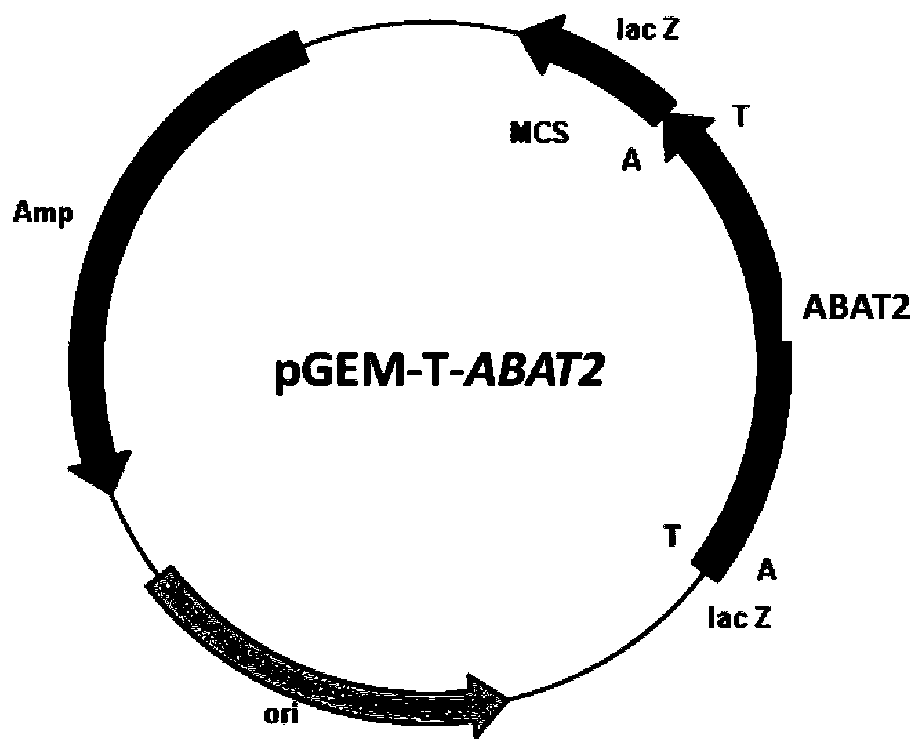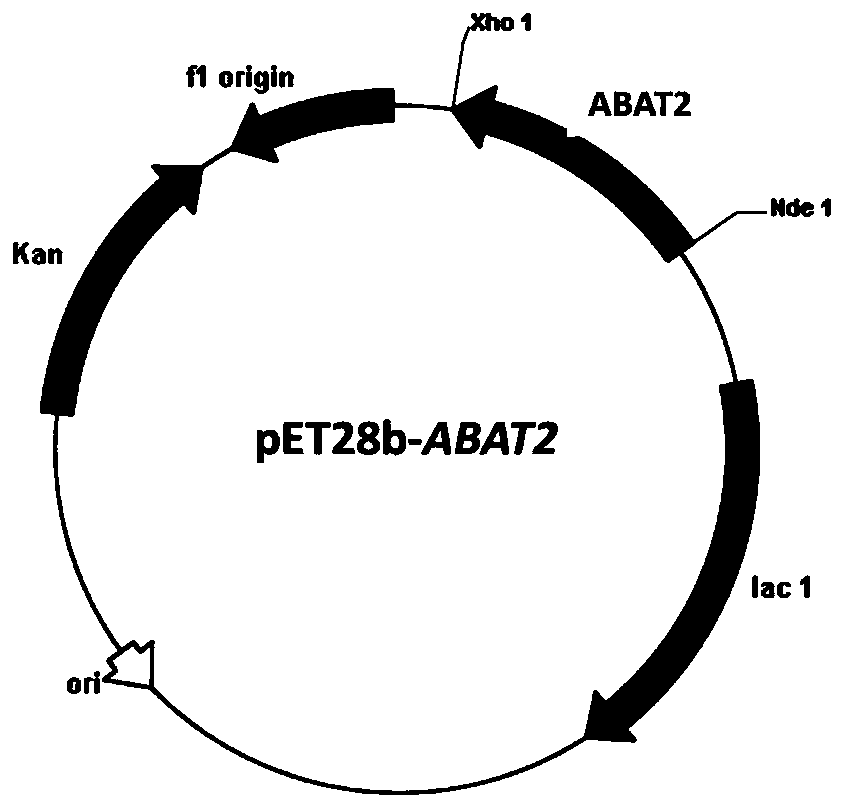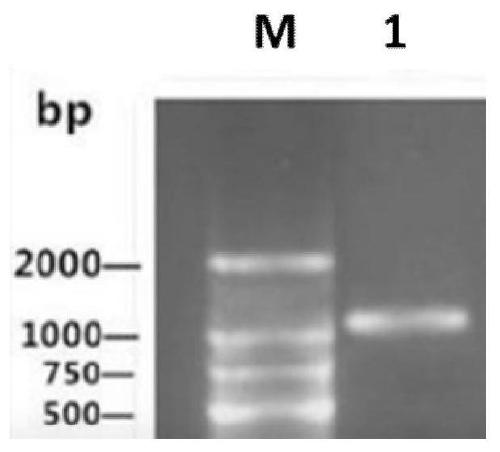A kind of transaminase mutant and its application in producing l-glufosinate-ammonium
A mutant, transaminase technology, applied in the field of bioengineering, can solve the problems of only 52% conversion rate and low process efficiency
- Summary
- Abstract
- Description
- Claims
- Application Information
AI Technical Summary
Problems solved by technology
Method used
Image
Examples
Embodiment 1
[0043] Example 1: Amplification of transaminase gene ABAT2
[0044] Pseudomonas fluorescens ZJB09-108 is isolated from the soil and stored in the China Center for Type Culture Collection (preservation number CCTCC NO: M2012539, which has been disclosed in the patent application, application number CN 201210593105.3, published (announcement ) No. CN103131649A).
[0045] Based on the transaminase gene sequencing information from Pseudomonas (WP_076423369.1) included in Genbank, a rapid nucleic acid extraction instrument was used to extract the total genomic DNA of Pseudomonas (thalline, and the genomic DNA was used as a template, and primer 1 (5'-ATGAACACCAACAACGCTC-3') and primer 2 (5'-TTAAGCCTGTTTAGCTTC-3') for PCR amplification. PCR reaction system (total volume 50 μL): 10×Pfu DNA Polymerase Buffer 5 μL, 10 mM dNTP mixture (dATP , dCTP, dGTP, and dTTP each 2.5 mM) 1 μL, 1 μL each of cloning primer 1 and primer 2 at a concentration of 50 μM, 1 μL of genomic DNA, 1 μL of Pfu D...
Embodiment 2
[0048] Embodiment 2: Construction of recombinant Escherichia coli BL21(DE3) / pET28b-ABAT2
[0049] According to the ABAT2 gene sequence design primer 3 (5'-CCG in embodiment 1 CATATG AACACCAAACAAC-3), Primer 4 (5'-TTG CTCGAG TTAAGCCTGTTTAGC-3'), and Nde I and Xho I restriction enzyme sites (underlined) were introduced into primer 3 and primer 4, respectively. Under the initiation of primer 3 and primer 4, high-fidelity Pfu DNA polymerase was used to amplify, and the recombinant plasmid pMD18-T-ABAT2 was used as a template (obtained in Example 1) to obtain the ABAT2 gene sequence, which was sequenced using Nde I and The amplified fragment was treated with Xho I restriction endonuclease (TaKaRa), and the fragment was ligated with the commercial vector pET28b (Invitrogen) treated with the same restriction endonuclease using T4 DNA ligase (TaKaRa), The expression vector pET28b-ABAT2 was constructed ( figure 2 ). The constructed expression vector pET28b-ABAT2 was transformed ...
Embodiment 3
[0050] Embodiment 3: the preparation of recombinant transaminase (ABAT2) wet thalline
[0051] The recombinant Escherichia coli E. coli BL21(DE3) / pET28a-ABAT2 bacterial cell containing the expression recombinant plasmid pET28a-ABAT2 obtained in Example 2 was inoculated into LB liquid medium containing a final concentration of 50 μg / mL kanamycin resistance, 37°C, cultured at 200rpm for 12h, then inoculated with 1% (v / v) inoculum into fresh LB liquid medium containing kanamycin resistance at a final concentration of 50 μg / ml, and cultivated at 37°C at 150rpm until Cell OD 600 After reaching 0.6-0.8, add IPTG with a final concentration of 0.1mM, induce culture at 28°C for 12h, centrifuge at 4°C and 8000rpm for 10min, discard the supernatant, collect the precipitate, and obtain recombinant Escherichia coli BL21( DE3) / pET28a-ABAT2 wet cells. The bacterium can be used directly as a biocatalyst or for protein purification.
PUM
 Login to view more
Login to view more Abstract
Description
Claims
Application Information
 Login to view more
Login to view more - R&D Engineer
- R&D Manager
- IP Professional
- Industry Leading Data Capabilities
- Powerful AI technology
- Patent DNA Extraction
Browse by: Latest US Patents, China's latest patents, Technical Efficacy Thesaurus, Application Domain, Technology Topic.
© 2024 PatSnap. All rights reserved.Legal|Privacy policy|Modern Slavery Act Transparency Statement|Sitemap



